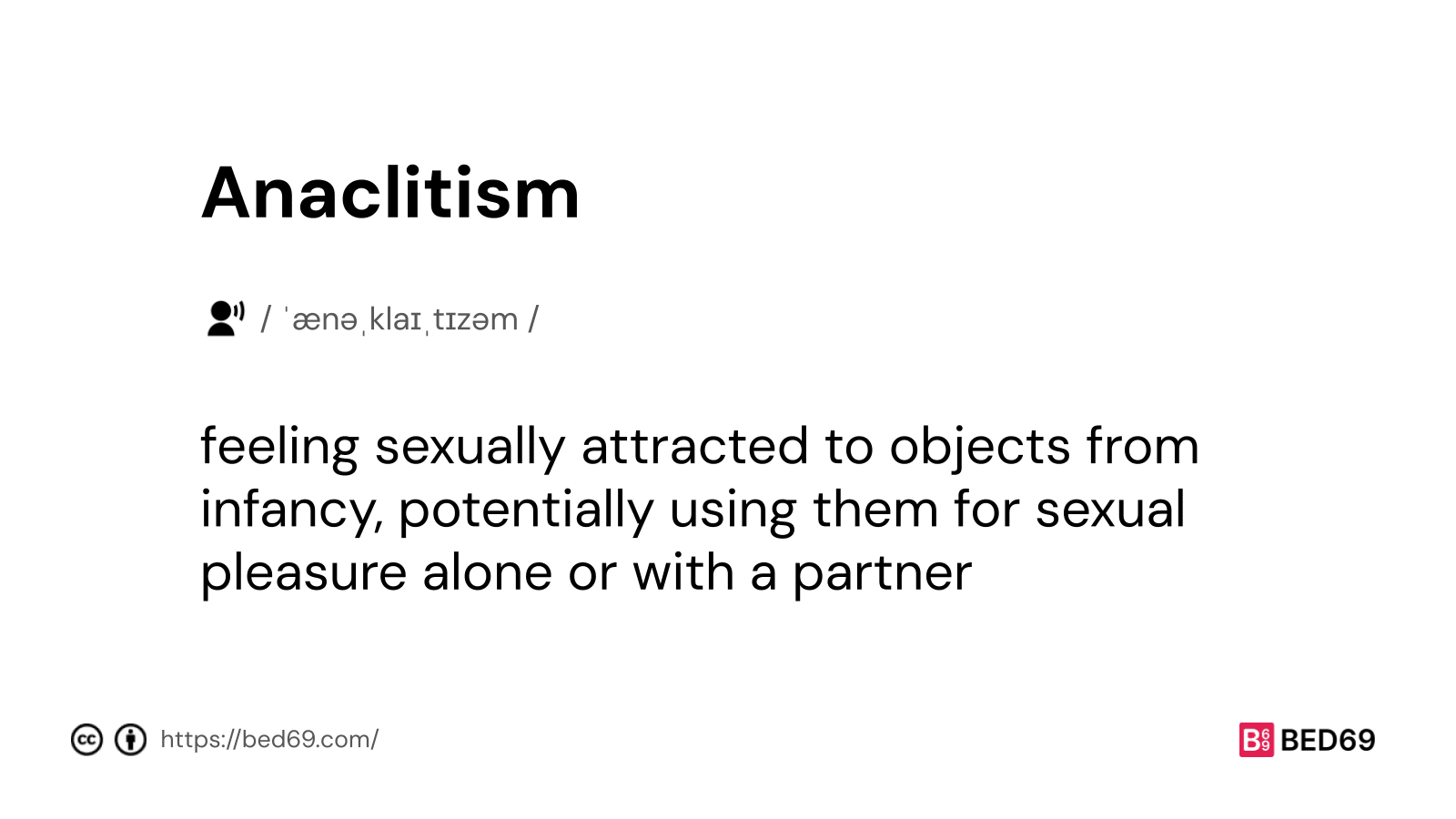What is Anaclitism?
Anaclitism is when a person feels sexual excitement from objects linked to their infancy. They might have fantasies about these objects during sex, use them sexually alone or with a partner, or both. This can include using childhood items like blankets or toys in a sexual way.
Anaclitism pronunciation: / ˈænəˌklaɪˌtɪzəm /

What triggers Anaclitism
Triggers for anaclitism can vary but often stem from associations with objects tied to one’s infancy. This arousal may arise from using childhood items during sexual activities, like blankets or toys. People with anaclitism may find sexual pleasure in acts reminiscent of infancy, such as suckling or being in soiled clothing.
The link between infancy experiences and adult sexual instincts, as suggested by Freud, sheds light on the roots of anaclitism. While many adults can navigate healthy sex lives with anaclitism, intervention may be necessary if it disrupts daily functioning. Treatment options like therapy or hypnosis can aid in managing anaclitism’s impact on personal and professional realms.
Impact on relationships and self-esteem
People with anaclitism may find that their relationships and self-esteem are impacted by their sexual preferences. In relationships, individuals with anaclitism may struggle with partners who do not understand or accept their desires, leading to feelings of isolation or rejection. This can create challenges in forming and maintaining intimate connections. Moreover, the shame or stigma associated with unconventional sexual preferences can affect self-esteem, causing individuals to feel misunderstood or judged by society.
Furthermore, the reliance on childhood objects for sexual arousal can lead to internal conflicts, as individuals may struggle with feelings of guilt or confusion about their desires. Managing these conflicting emotions can be taxing and may contribute to a sense of internal turmoil. Additionally, societal norms and taboos surrounding unconventional sexual behaviors can further exacerbate feelings of shame or self-doubt, impacting one’s overall self-esteem and sense of acceptance.
Overall, the impact of anaclitism on relationships and self-esteem underscores the importance of understanding and acceptance in navigating personal sexuality. Open communication, self-compassion, and seeking support from understanding individuals or professionals can be vital in promoting healthy relationships and a positive self-image for individuals with anaclitism.
Explore other interesting terms:
